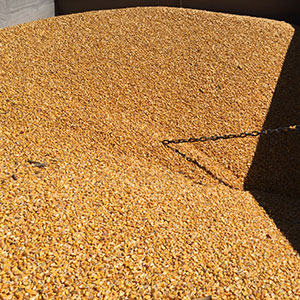Vietnam lifts suspension of DDGS imports
Import permits will be issued for U.S. DDGS and new phosphine fumigation protocols will be acceptable for shipments of U.S. corn, DDGS and wheat.

Vietnam announced it will lift its suspension of U.S. distiller’s dried grains with solubles (DDGS) imports and ease fumigation requirements for U.S. corn and wheat imports.
In the previous marketing year (September 2015 thru June 2016), an estimated 756,733 metric tons of DDGS worth $161,130,059 were sent to Vietnam. The current marketing year from September 2016 until June 2017 saw a decrease of 35% to 490,914 metric tons for an estimated $94,278,978, according to USDA export data.
“We are very pleased to hear the news from Vietnam overnight that, as of today, import permits will be issued for U.S. DDGS and new phosphine fumigation protocols will be acceptable for shipments of U.S. corn, DDGS and wheat,” said U.S. Grains Council (USGC) president and CEO Tom Sleight.
“Since the suspension on imports was put in place late last year, our staff has worked closely with industry and government both here in the United States and in Vietnam to find a resolution to this issue,” Sleight added. This intense effort was strongly supported by the U.S. Department of Agriculture's (USDA's) leadership, officials in its Animal and Plant Health Inspection Service (APHIS) and the Office of the U.S. Trade Representative (USTR).
“While we never want to see a market closed to our products for any reason, this was an example of how to effectively and comprehensively tackle a scientific challenge impeding trade flows,” Sleight noted. “It was also a reminder of the importance of strong trade policy. Vietnam is one of the fastest growing feed markets in the world, and the disruptions and losses this issue caused reinforce the need for agreements that ensure open access and outline resolution processes for mutual concerns.”
Sleight concluded, “We enthusiastically thank everyone involved in our own government, the government in Vietnam and industries in both countries for their collaboration on this critical issue to our industry.”
About the Author(s)
You May Also Like




